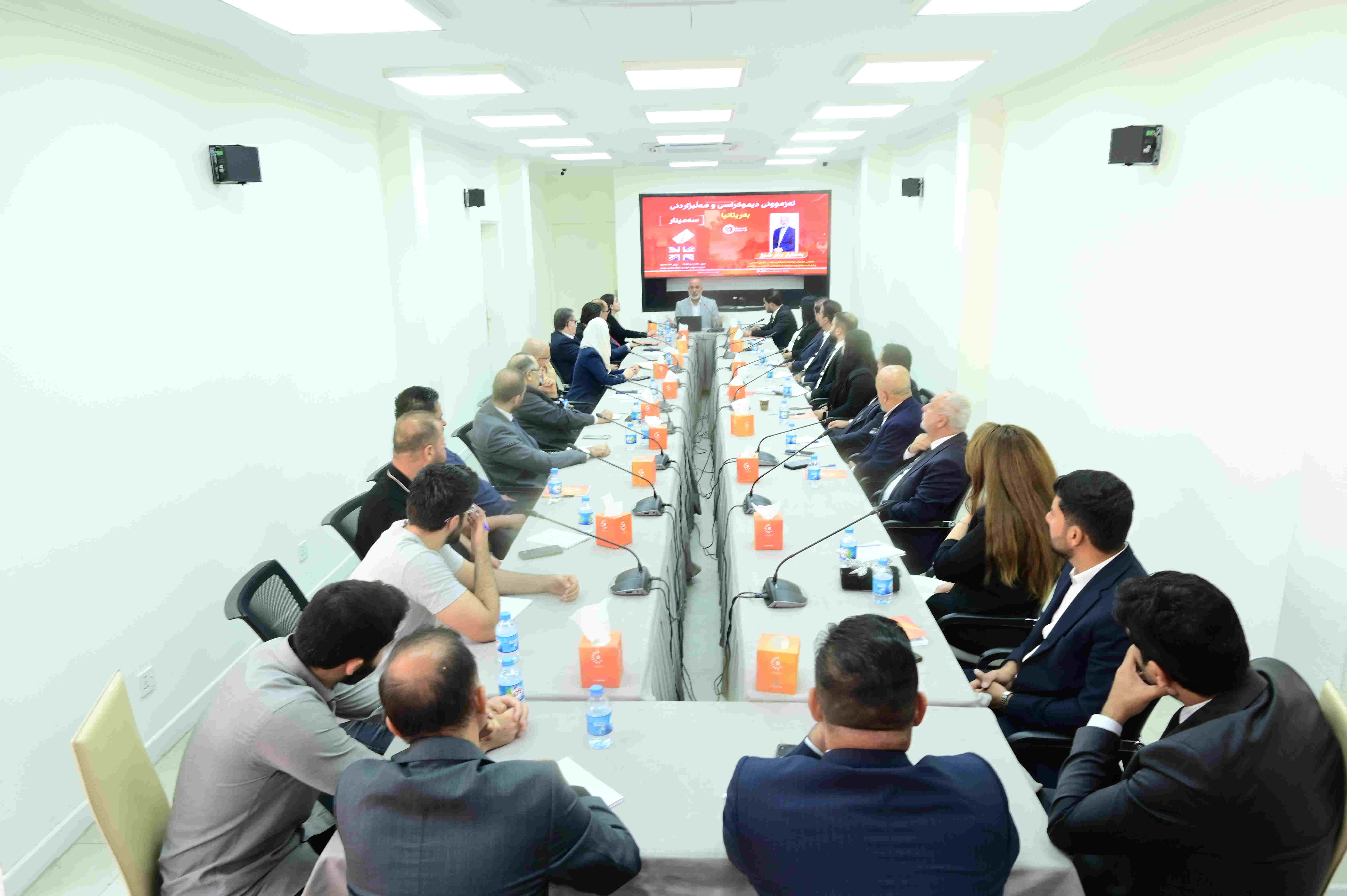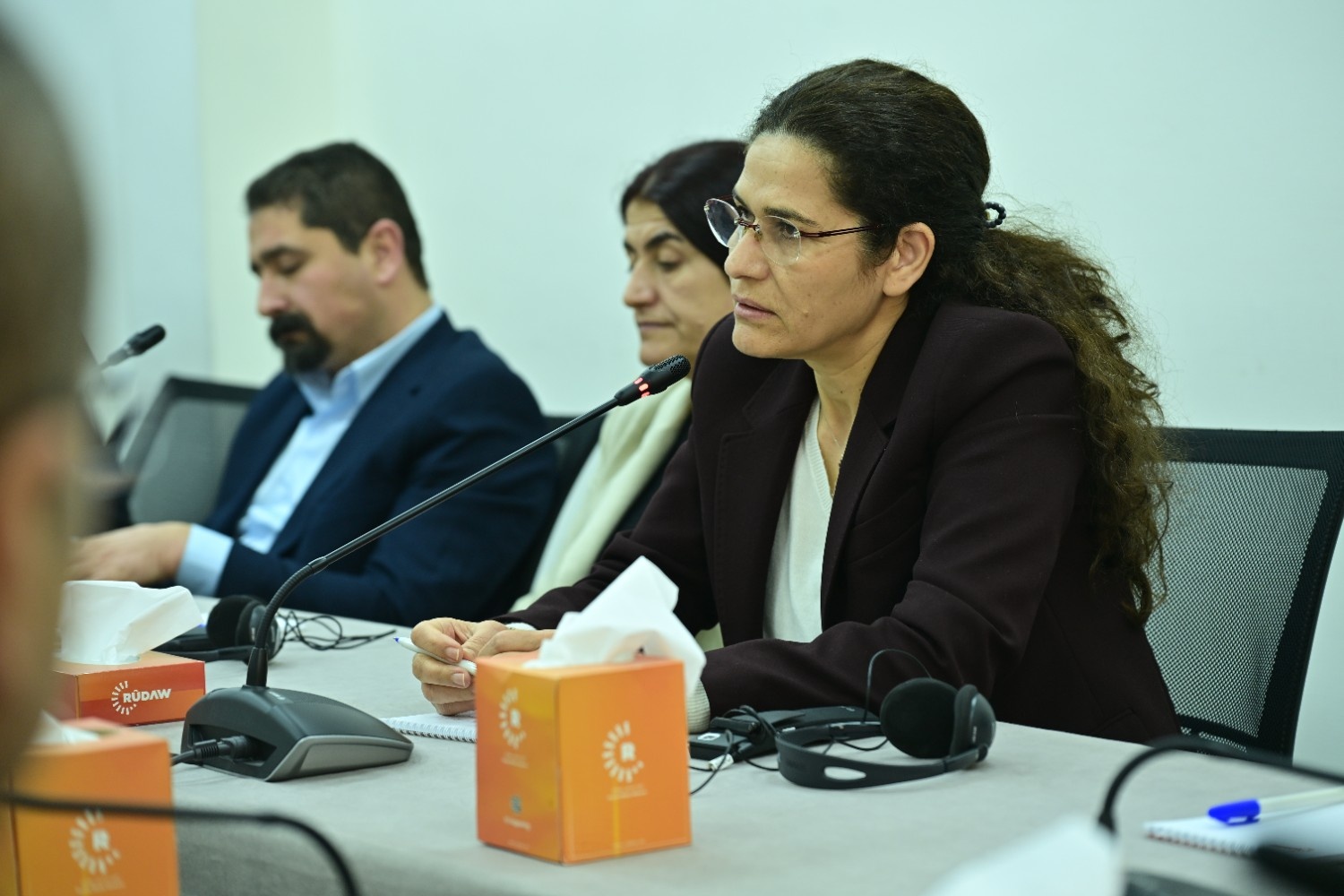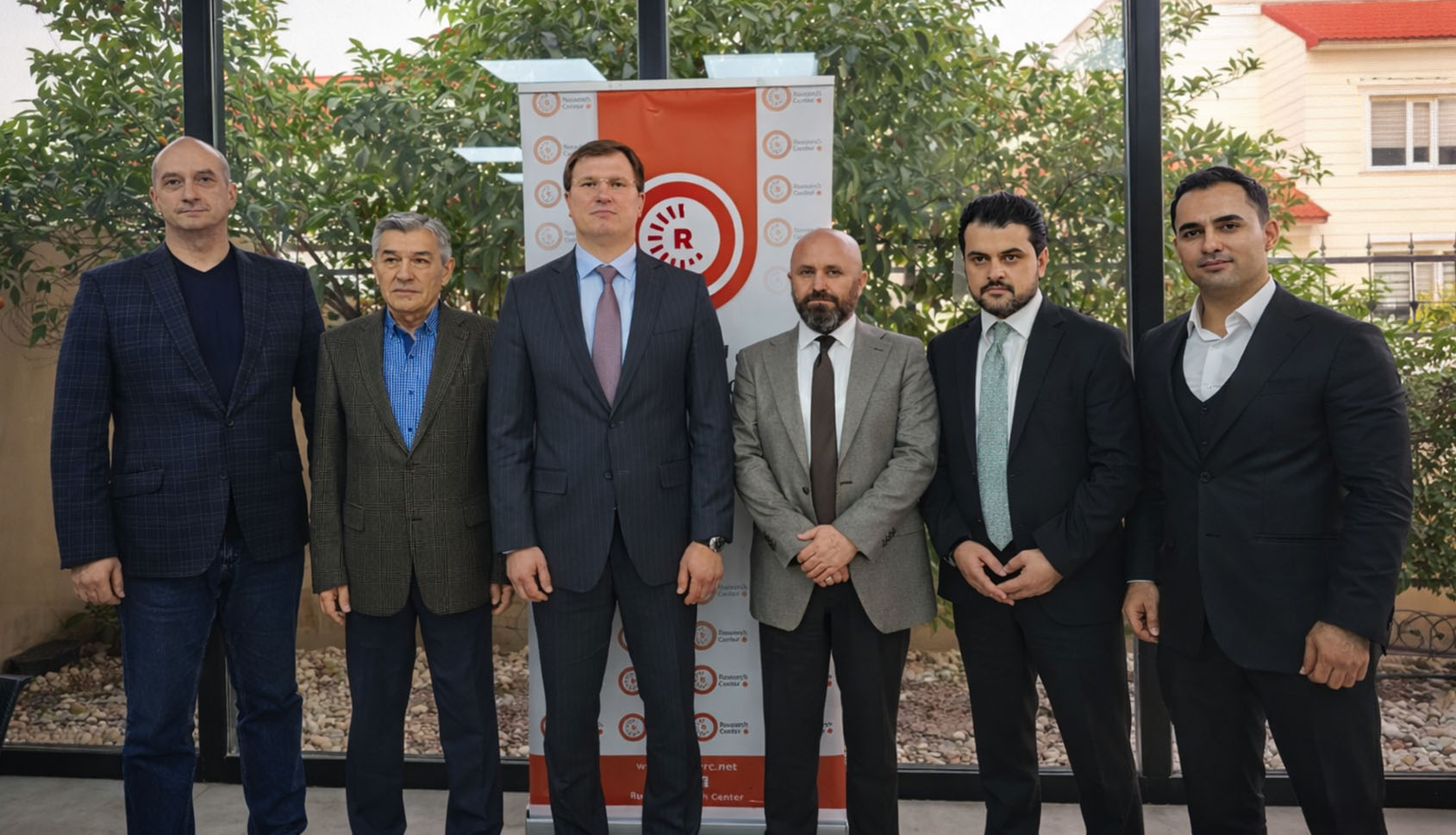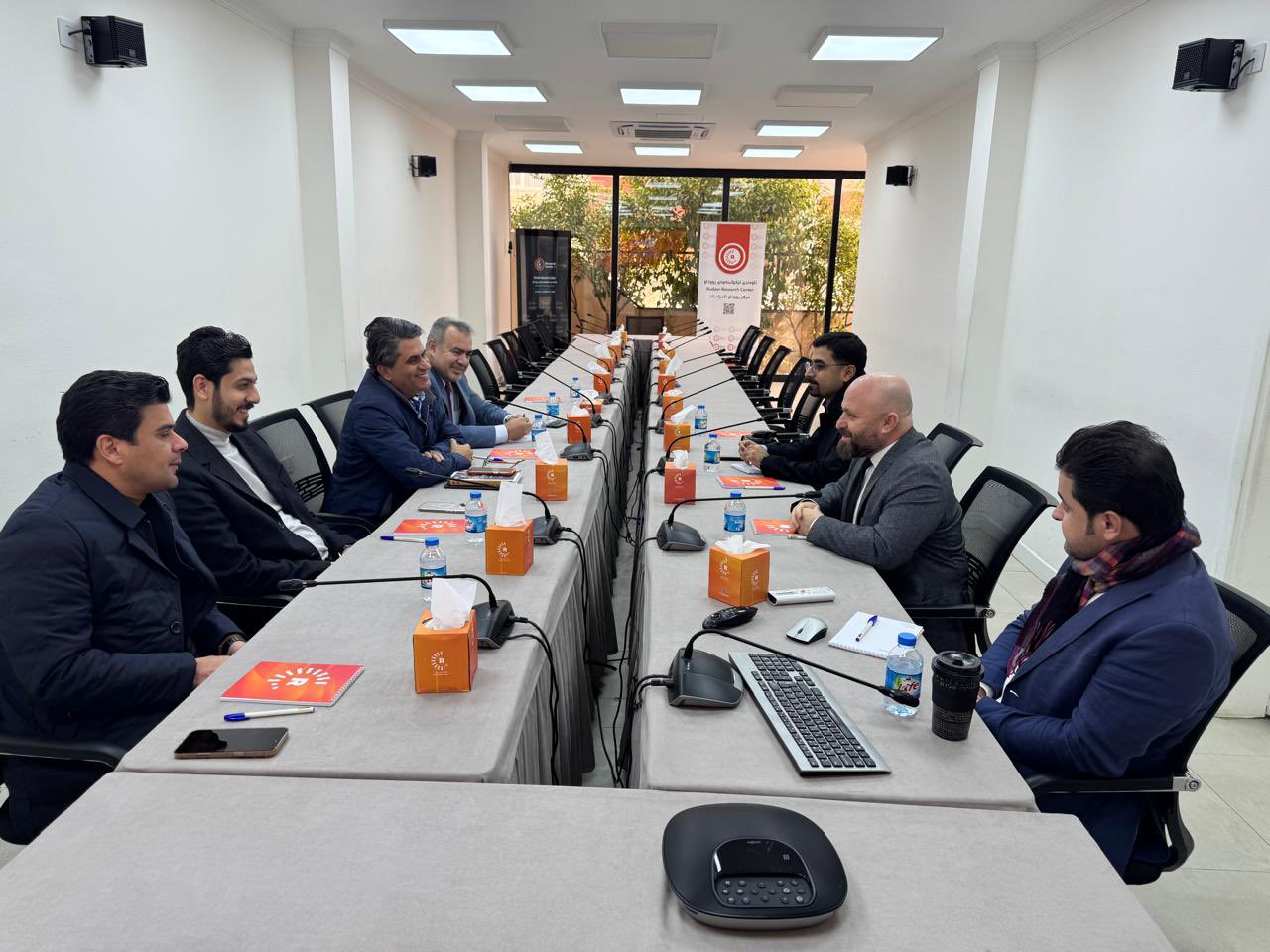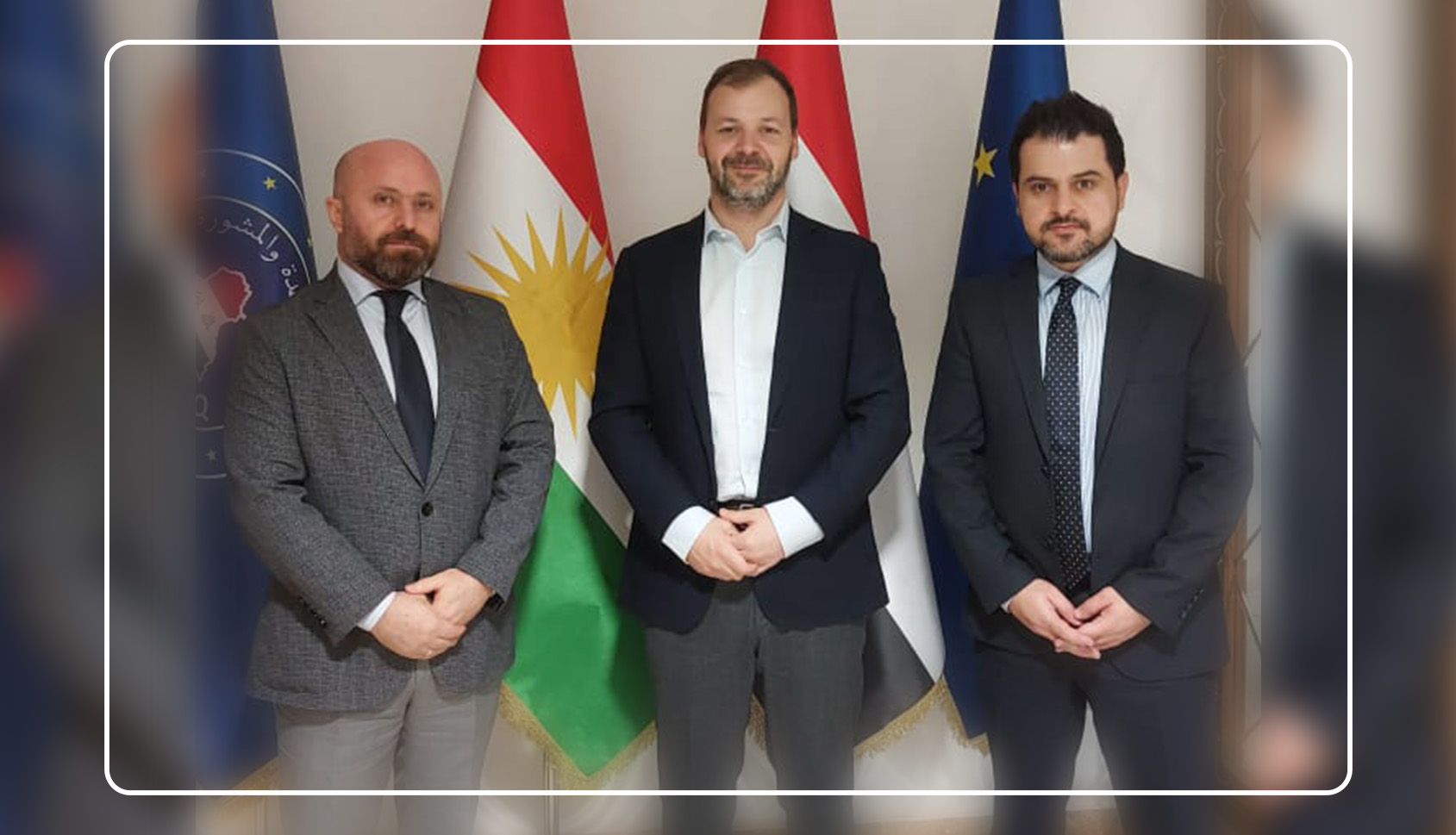Hakar Ali
On October 1, 2024, the Rudaw Research Center hosted a seminar titled “Democracy and Elections in the United Kingdom," featuring Bakhtiar Mam Sheikh, a member of the Royal Borough of Kensington and Chelsea Council in London. The event was attended by political and electoral analysts, lecturers, and students.
During the seminar, Bakhtiar Mam Sheikh delved into the intricacies of the UK’s democratic system and electoral processes, offering a comparative analysis of the election mechanisms in the Kurdistan Region and Iraq. He provided a detailed overview of the UK's transition from monarchy and authoritarian rule to a democratic system, emphasizing the significance of long-established democratic institutions and electoral practices. The seminar shed light on the unique challenges faced by the UK throughout its democratic evolution, while also highlighting lessons that could be relevant for the Kurdistan Region's own journey toward strengthening its democratic foundations.
At the outset of the seminar, Bakhtiar Mam Sheikh provided a concise explanation of the concepts of democracy and dictatorship. He emphasized that while democracy is an inclusive and multifaceted process, it demands a solid foundation built on political education, active civil participation, and comprehensive institutional reform. He pointed out that these elements are essential for nurturing a democratic culture and ensuring its sustainability.
Addressing the democratic process in the Kurdistan Region and Iraq, Bakhtiar Mam Sheikh acknowledged that Kurdistan has made notable strides toward democracy and the implementation of elections, despite facing persistent challenges and shortcomings. He emphasized that while democracy grants freedom and rights, it also requires a shared sense of responsibility from both citizens and leaders. According to Bakhtiar Mam Sheikh, the journey to true democracy extends beyond merely holding elections; it involves fostering a political culture where opposition is respected, the rule of law is upheld, and accountability is integral to governance.
In another segment of the seminar, Bakhtiar Mam Sheikh emphasized the crucial role of democracy and elections in cultivating a culture of accountability and transparency in governance. He noted that elections are not merely about the transfer of power but also about ensuring that citizens' rights and needs are addressed by their elected representatives. Bakhtiar Mam Sheikh highlighted that the people of the Kurdistan Region and Iraq are eager to participate in and strengthen democracy, but they require the appropriate tools and frameworks to overcome obstacles. He stressed the importance of continuously improving electoral processes and fostering the development of a more robust democratic system.
In discussing the role of the opposition and the path to gaining power, Bakhtiar Mam Sheikh highlighted the importance of building a strong democratic system that fosters healthy competition among political parties. He referenced the example of the British opposition during the 1997 general election, when Tony Blair, as the leader of the Independent Labour Party (ILP), successfully ended nearly two decades of Conservative rule. Bakhtiar Mam Sheikh underscored that this election demonstrated how a well-organized and strategic opposition can challenge the ruling party by presenting voters with a credible and appealing alternative. This, he noted, is a vital aspect of sustaining a healthy democracy.
Similarly, the 2010 general election marked another pivotal moment in the UK's democratic and electoral history, when the Conservative Party, led by David Cameron, formed a coalition government with the Liberal Democrats. This outcome arose because no party secured an absolute majority in parliament, leading to a coalition as a practical solution to maintain governance. Bakhtiar Mam Sheikh highlighted this as an example of how democracy can adapt to political complexities, allowing different parties to collaborate in the interest of stability while still reflecting the will of the electorate.
One of the key technical aspects discussed during the seminar was how elections are organized in the UK and the systems used to conduct general elections. Bakhtiar Mam Sheikh explained that the British parliament consists of 650 seats, with the UK divided into 650 constituencies, each electing one Member of Parliament. He emphasized that having multiple constituencies and fewer candidates per election strengthens the accountability of elected officials, as it makes them more directly responsible to the voters who chose them. Bakhtiar Mam Sheikh expressed his hope that the Kurdistan Region could adopt a similar approach by being divided into 100 constituencies, with each electing a single representative. He argued that this system would encourage greater responsibility from candidates toward their voters and ensure that elected representatives remain more accountable to the specific constituencies they serve.
Another part of the seminar focused on election campaigns and the relationship between voters and candidates. Bakhtiar Mam Sheikh highlighted the significant differences between campaign practices in Western countries and those in Iraq and the Kurdistan Region. He noted that in the UK, the widespread display of candidate posters, banners, and images in public spaces is uncommon. Instead, candidates personally visit the citizens in the constituencies where they are running, presenting their plans and programs within the framework of their party or as independents, and directly asking for votes. Regarding the impact of current election campaigns, Bakhtiar Mam Sheikh remarked, "This type of campaign does not significantly influence the electorate; however, it does reflect the level of intellectual engagement within society. The next parliament has the opportunity to enact new laws governing election campaigns, including their methods and processes. Continuing with the current approach is a misuse of public resources." He advocated for a shift toward campaigns focused on actively listening to citizens and addressing their concerns. Bakhtiar Mam Sheikh emphasized that funds spent on traditional campaign methods could be better invested in public services and infrastructure improvements, ultimately benefiting the community.
In discussing the implementation of election promises and the competition among political figures within British parties, Bakhtiar Mam Sheikh highlighted two notable examples:
The first is the political rivalry between Ken Livingstone and Tony Blair, which serves as a prominent illustration of the democratic process in Britain. Livingstone, a former mayor of London, frequently challenged Blair’s policies associated with New Labour, reflecting the internal divisions within the party. Despite their differences, both leaders managed to advance their political careers within the democratic framework and earned the trust of their party members and the British electorate.
The second example is the rivalry between Jeremy Corbyn and Sir Keir Starmer, the current leader of the Labour Party. Corbyn, representing the left wing of the party, and Starmer, who holds more centrist views, exemplified the diversity of thought within British democracy. Despite their differing perspectives, they worked collaboratively for the Labour Party during a time that highlighted the party's varied ideological landscape.
Bakhtiar Mam Sheikh addressed the impact of tensions in the Middle East on the democratic process, highlighting the regional threats to democracy. He pointed specifically to escalating conflicts, such as the Gaza war, the Israeli-Resistance Front, and tensions related to Iran, which pose significant risks to the stability of democratic processes in the region. These conflicts, he noted, could also have repercussions for the upcoming parliamentary elections in the Kurdistan Region scheduled for October, potentially influencing the political landscape and voter engagement.
Additionally, Bakhtiar Mam Sheikh emphasized the importance of having an opposition in the democratic process by referencing the famous saying of Abraham Lincoln, the 16th President of the United States: "The best people in my cabinet are my opponents." He underscored that governance without a robust opposition can lead to dictatorship, as it eliminates mechanisms for accountability and oversight of the ruling party. This lack of opposition can undermine democratic principles and erode public trust in governance.
Another topic of discussion was China’s transformative experience in reshaping the global governance perspective. Contrary to common expectations, one might not anticipate good governance from a one-party, authoritarian regime. However, China has challenged this notion by achieving significant advancements in technology, infrastructure, and economic development. These achievements have demonstrated that effective governance can exist alongside a centralized political system, thereby altering the traditional philosophy surrounding governance and its relationship to political structure. This perspective is further supported by the experiences of other countries, such as Russia and Iran, which reframe the classification of democracy and non-democracy in global governance. These nations illustrate that effective governance and development can occur within authoritarian frameworks, prompting a reevaluation of conventional definitions of democracy and the factors that contribute to successful governance.
At the conclusion of the seminar, Bakhtiar Mam Sheikh and the participants engaged in a discussion about the differences between the Kurdistan Region and the UK, focusing on how these disparities significantly impact the electoral process and the development of democracy in both Iraq and the Kurdistan Region. While the UK's entire democratic and electoral system may not serve as a direct benchmark, the experiences and lessons from the UK's democratic practices and electoral processes can provide valuable insights for fostering democracy in the Kurdistan Region.

